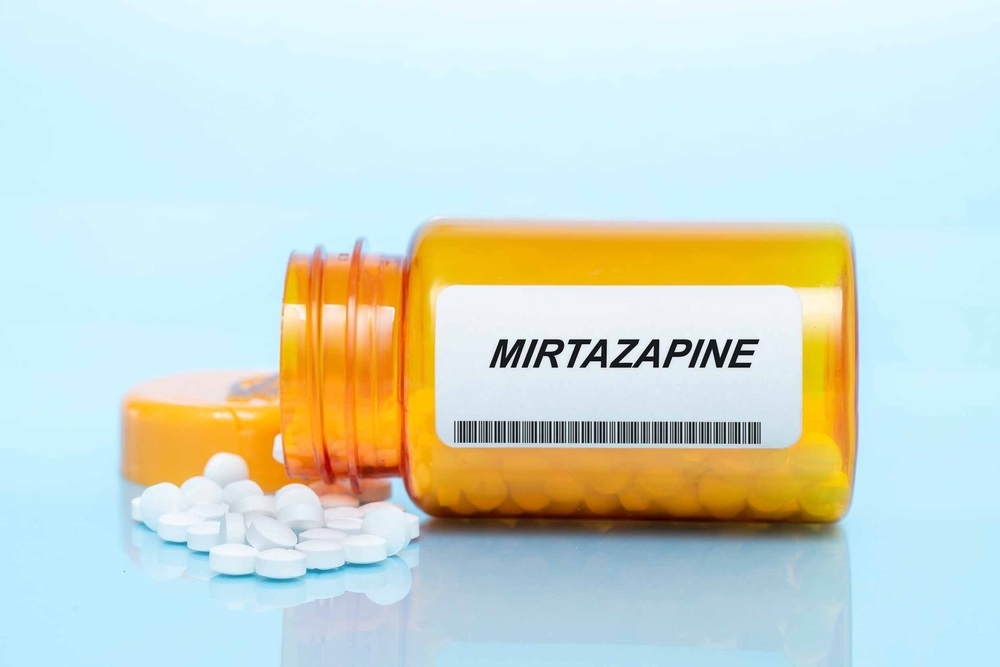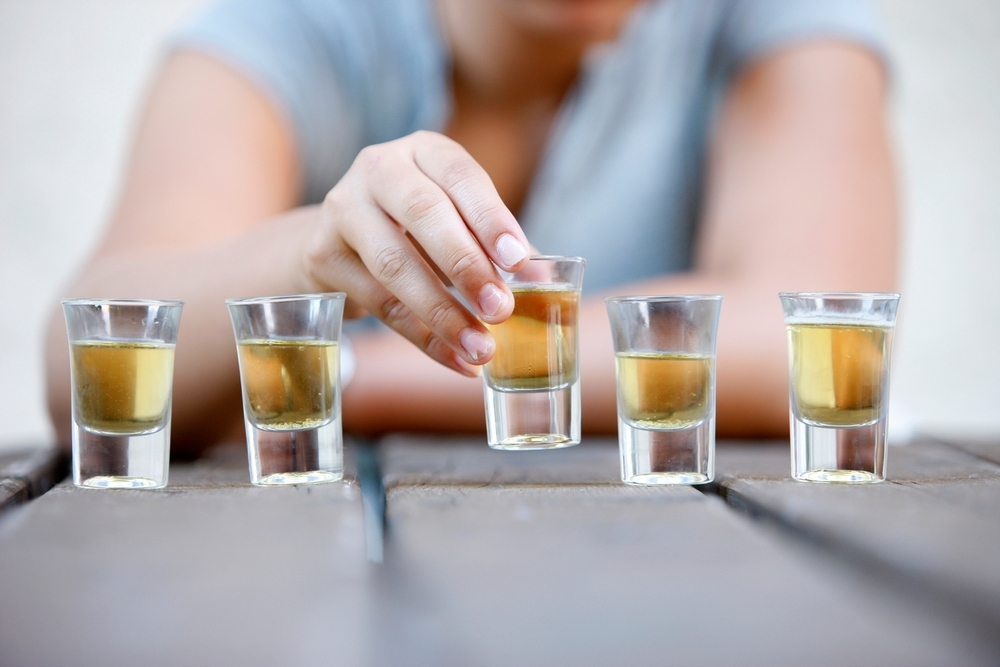Last Updated:
April 16th, 2025
What is Mirtazapine?
Mirtazapine, sold under brand names such as Remeron in the UK, is an antidepressant that belongs to a class of medications known as noradrenergic and specific serotonergic antidepressants (NaSSAs).
Unlike selective serotonin reuptake inhibitors (SSRIs), Mirtazapine has a unique way of working, gently balancing the brain’s chemicals to lift mood with the hopes of alleviating anxiety and improving sleep patterns.
It’s primarily prescribed for treating depression but can also help with anxiety disorders, PTSD, insomnia and appetite loss.
Although Mirtazapine can be highly effective, it isn’t without potential side effects. Commonly reported effects include:
- Sleepiness
- increased appetite leading to weight gain
- Dizziness
- Dry mouth
These are often manageable and temporary, typically easing as the body adjusts to the medication. However, the drowsiness associated with Mirtazapine highlights why it should be used with caution, particularly when considering other sedating substances like alcohol.
How does Mirtazapine work?
Mirtazapine’s effectiveness lies in its influence on certain brain chemicals, mainly serotonin and noradrenaline. These neurotransmitters are crucial for mood regulation and sleep. Rather than increasing serotonin directly (like SSRIs), Mirtazapine blocks specific receptors, resulting in an increase in serotonin and noradrenaline availability. This process helps to elevate mood, reduce anxiety symptoms and promote restful sleep.
The sedative effect of Mirtazapine occurs because it also targets histamine receptors in the brain, creating a calming effect. While beneficial for those who struggle with insomnia, this sedating property means that caution must be exercised, particularly when engaging in activities requiring alertness, such as driving or operating machinery.
Why alcohol and Mirtazapine shouldn’t be mixed
When you’re taking any medication, especially one that alters your mood and alertness, it’s essential to be cautious about consuming alcohol. Although having a drink might seem harmless, mixing alcohol with Mirtazapine significantly heightens the risks associated with each substance individually.
Doctors generally recommend avoiding alcohol entirely while taking antidepressants like Mirtazapine because both substances influence the central nervous system, intensifying sedative effects and making side effects more pronounced.
Even small amounts of alcohol can increase the likelihood of feeling extremely drowsy, dizzy or disoriented. The combination can impair your judgement, making routine tasks, like driving or cooking, dangerous. Beyond these immediate concerns, combining antidepressants, including Mirtazapine, with alcohol can also undermine the effectiveness of your medication. There is a potential for prolonging or exacerbating symptoms of depression or anxiety, rather than relieving them.
Why do people mix Mirtazapine and alcohol?
With all the warnings against mixing mirtazapine and alcohol, it can be confusing why someone would want to do this. Often, the reasons aren’t straightforward and can involve a mix of different factors.
Here are some of the most common routes:
Emotional self-medication
When struggling with depression or anxiety, some people turn to alcohol as a form of quick emotional relief. Drinking may momentarily numb emotional pain or quiet racing thoughts, creating the illusion that alcohol is helping manage symptoms. Unfortunately, this temporary relief can mask deeper issues, making mental health problems worse over time.
Social pressures and habits
Alcohol consumption is deeply embedded in social culture, and many individuals find themselves drinking simply because it’s expected in social situations. Even when taking antidepressants like Mirtazapine, some may feel uncomfortable abstaining or explaining why they’re not drinking. This social pressure can lead to unintended mixing despite knowing the potential risks.
Misunderstanding or underestimating medical advice
Not everyone receives or fully absorbs clear medical advice about mixing medications with alcohol. Some individuals mistakenly believe that occasional alcohol use with antidepressants is safe or they may underestimate how significant the interactions can be. This route is especially common if healthcare professionals haven’t explicitly discussed alcohol use during prescribing.
What to do if you’ve mixed Mirtazapine and alcohol
Mixing Mirtazapine and alcohol can be unsettling, especially if it was unintentional or you’re noticing uncomfortable effects. The important thing right now is staying calm and managing the situation safely. Here are clear, actionable steps to take:
- Stop drinking immediately and switch to drinking water to stay hydrated.
- Sit or lie down in a comfortable and safe environment to prevent falls or injuries due to dizziness.
- Avoid operating machinery or driving, as your reaction time and judgment could be severely impaired.
- Ask someone you trust to stay with you, keeping an eye on your symptoms in case they worsen.
- Contact NHS 111 or seek immediate medical help if you experience extreme sedation, trouble breathing, confusion, rapid heartbeat or any worrying symptoms.
- Don’t hesitate to seek help, even if your symptoms feel mild. Medical professionals are there to assist without judgment.
Could your alcohol use indicate addiction?
Finding yourself repeatedly mixing alcohol and Mirtazapine or struggling to avoid alcohol despite knowing the risks, could signal something deeper than occasional misuse.
It’s common for people to unintentionally slip from casual or social drinking into patterns that are harder to break, particularly when facing emotional challenges or mental health struggles. Recognising this isn’t easy but it’s an important step towards regaining control over your health and well-being.
If you’ve started noticing that alcohol has become difficult to resist or that you’re regularly drinking to manage emotions or medication side effects, it’s worth pausing to consider if your drinking habits might be developing into an addiction.
Taking a moment to honestly assess yourself can help clarify whether it’s time to seek additional support.
- Have you ever tried to cut back on drinking alcohol, only to find it more difficult than expected?
- Do you find yourself drinking despite knowing it might negatively impact your mental health, physical well-being or medication effectiveness?
- Have friends or family members expressed concern about your alcohol consumption?
- Have you noticed withdrawal symptoms like shaking, sweating, anxiety or insomnia when you go without alcohol?
- Has alcohol started interfering with your daily responsibilities, such as work, family commitments or relationships?
If you answered ‘yes’ to two or more of these questions, reaching out for professional advice could significantly improve your quality of life. Remember, you’re not alone and support is readily available.
Getting help with alcohol addiction at Oasis Runcorn
If your self-assessment suggests your drinking has become problematic, Oasis Runcorn is here to help.
At Oasis Runcorn, our specialist teams have extensive experience supporting people facing dual diagnosis, particularly those who find themselves struggling with alcohol addiction alongside mental health issues like depression or anxiety.
When you join our rehab programme, we start by guiding you through detox, providing continuous care to manage withdrawal symptoms safely and comfortably.
Once you’re feeling physically stronger, our therapy sessions begin. We use a range of proven therapeutic approaches such as cognitive behavioural therapy (CBT), dialectical behavioural therapy (DBT), one-to-one counselling and group therapy sessions. These therapies address both addiction and underlying mental health struggles simultaneously, helping you build resilience and develop practical coping skills.
Aftercare is the last stage and this provides crucial ongoing support, helping you maintain sobriety and navigate daily challenges long after rehab. It ensures that you’re never alone during difficult moments and helps reinforce strategies learned during treatment.
Take the first step today
If you or someone you care about is struggling with alcohol use alongside mental health issues, Oasis Runcorn is here to help. Contact us today to speak with our caring team and begin the journey toward recovery, healing and a healthier, happier life. You’re not alone and we’re ready to support you.
(Click here to see works cited)
- “About Mirtazapine.” NHS Choices, NHS, www.nhs.uk/medicines/mirtazapine/about-mirtazapine/. Accessed 26 Mar. 2025.
- “Mirtazapine and Alcohol/Food Interactions.” Drugs.Com, www.drugs.com/food-interactions/mirtazapine.html. Accessed 26 Mar. 2025.
- “Cautions – Antidepressants.” NHS Choices, NHS, www.nhs.uk/mental-health/talking-therapies-medicine-treatments/medicines-and-psychiatry/antidepressants/considerations/. Accessed 26 Mar. 2025.



